Find Help
More Items From Ergsy search
-
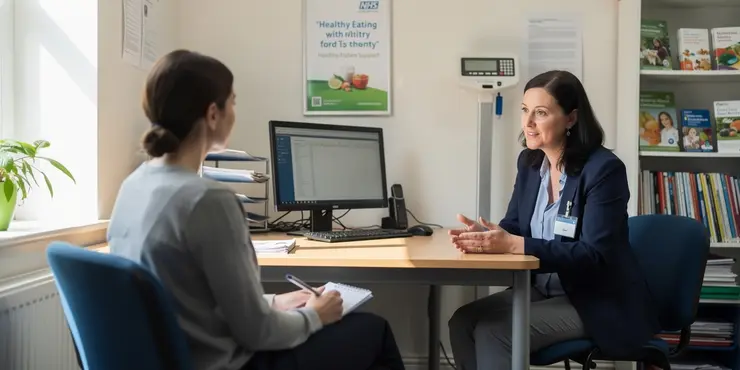
Jess Rann - Specialist Eating Disorders Dietitian
Relevance: 100%
-

Eating disorders: treatment
Relevance: 79%
-
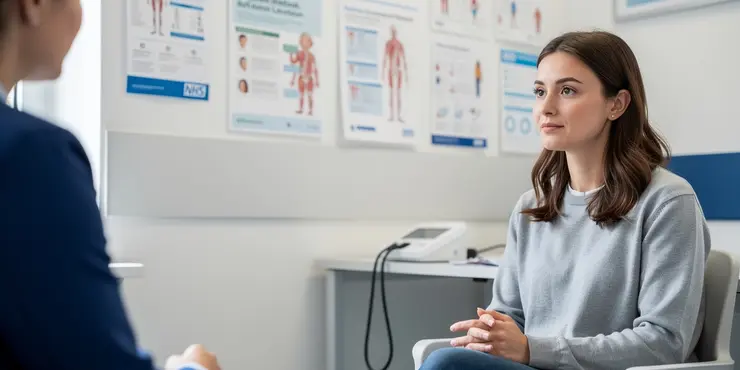
The treatment approach for an eating disorder
Relevance: 75%
-
Can eating disorders be treated?
Relevance: 72%
-
How are eating disorders diagnosed?
Relevance: 69%
-
What is an eating disorder?
Relevance: 67%
-
What is an Eating Disorder?
Relevance: 67%
-
Are there preventative measures for eating disorders?
Relevance: 66%
-
What is the role of therapy in treating eating disorders?
Relevance: 63%
-
Is it possible to recover from an eating disorder?
Relevance: 62%
-
How can someone seek help for an eating disorder?
Relevance: 62%
-
Who is at risk for developing an eating disorder?
Relevance: 61%
-
Are eating disorders only about food?
Relevance: 61%
-
What are the main types of eating disorders?
Relevance: 61%
-
Can eating disorders occur with other mental health conditions?
Relevance: 61%
-
What are common symptoms of eating disorders?
Relevance: 60%
-
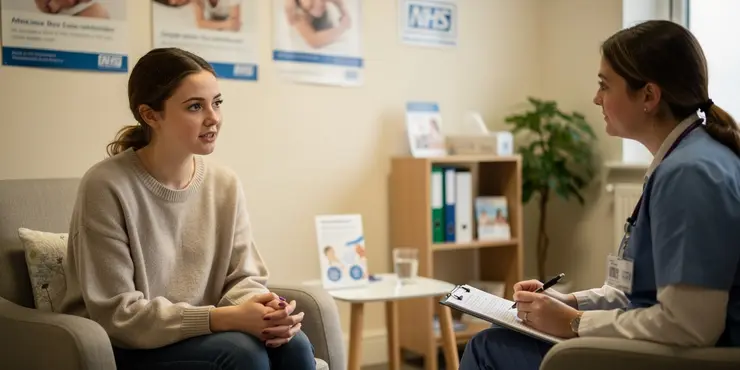
What is the impact of eating disorders on physical health?
Relevance: 58%
-
What are the early warning signs of an eating disorder?
Relevance: 58%
-
What are some common myths about eating disorders?
Relevance: 57%
-
What are the long-term effects of untreated eating disorders?
Relevance: 57%
-
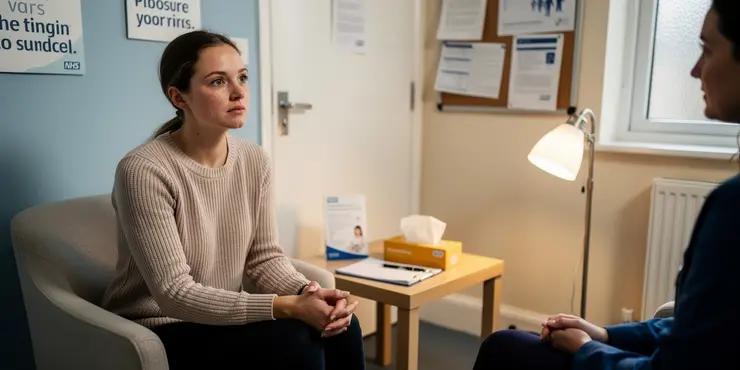
How do eating disorders affect mental health?
Relevance: 57%
-
What is body dysmorphia and how is it related to eating disorders?
Relevance: 55%
-
How can someone help a loved one with an eating disorder?
Relevance: 53%
-
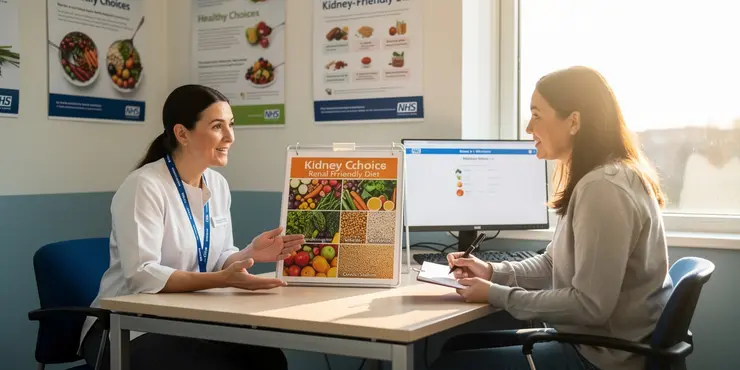
What should I eat to help with chronic kidney disease?
Relevance: 34%
-
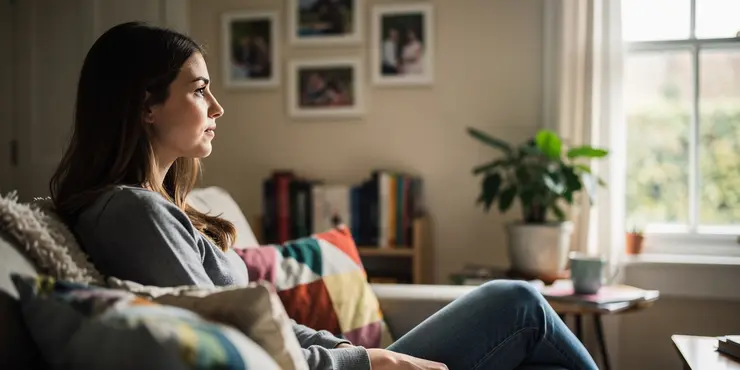
Living with Bipolar Disorder
Relevance: 33%
-
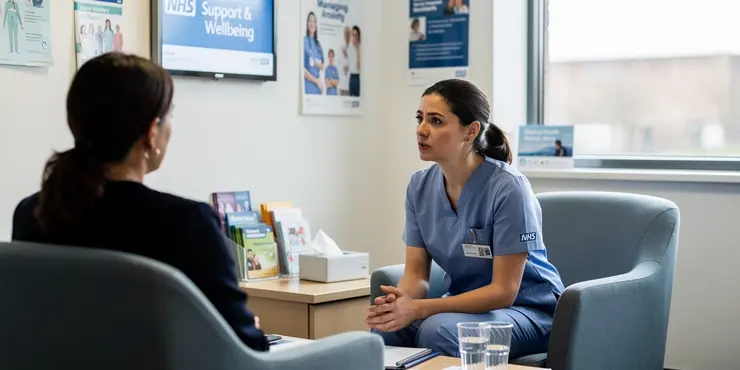
BSL - Symptoms of panic disorder
Relevance: 33%
-
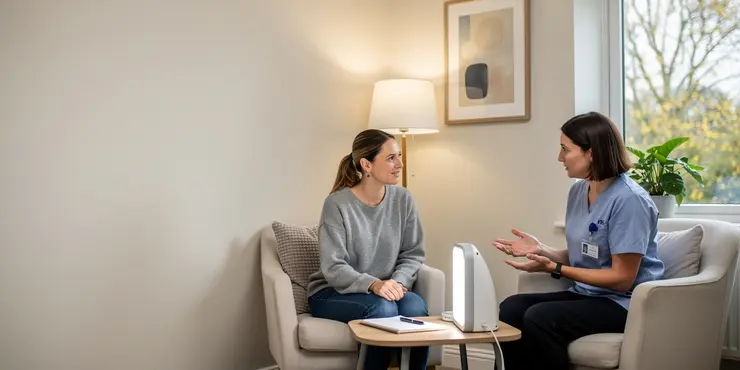
Strategies for Managing Seasonal Affective Disorder
Relevance: 32%
-
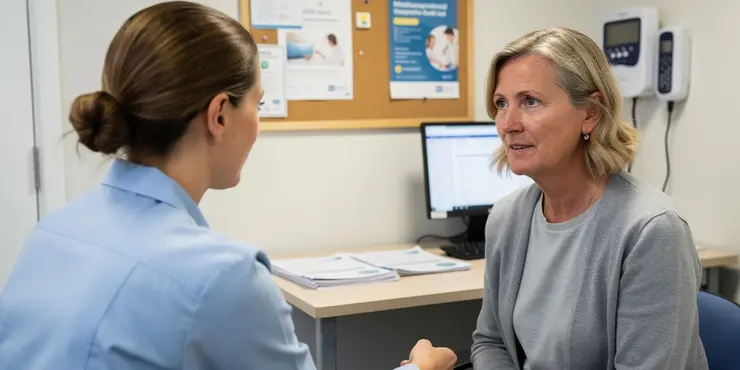
What is seasonal affective disorder - or SAD?
Relevance: 32%
-
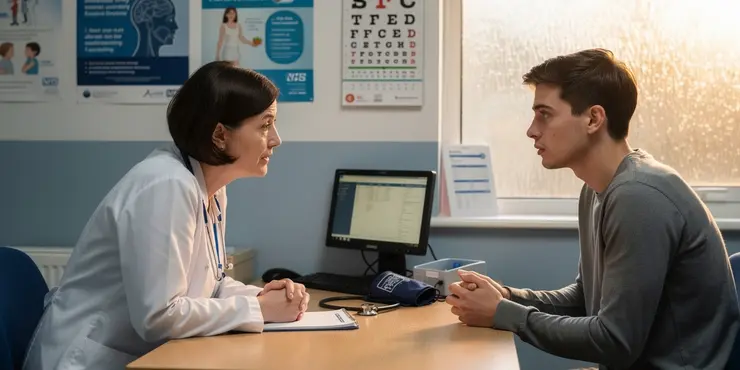
BSL - Diagnosis of panic disorder
Relevance: 32%
-
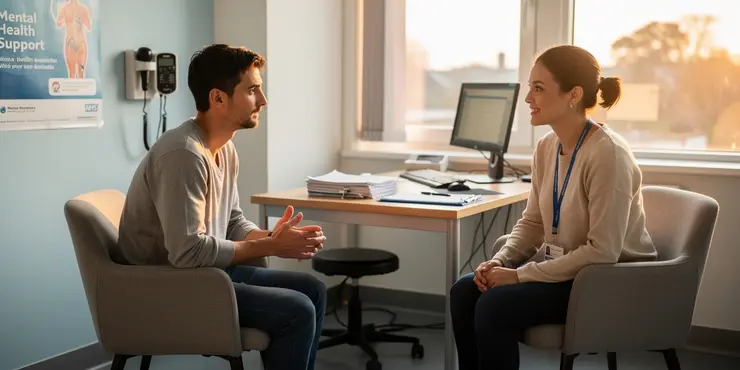
BSL - Causes of panic disorder
Relevance: 32%
-
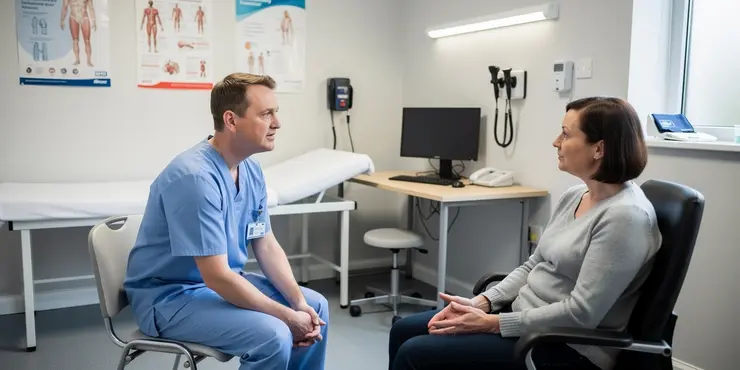
BSL - Introduction to panic disorder
Relevance: 31%
-
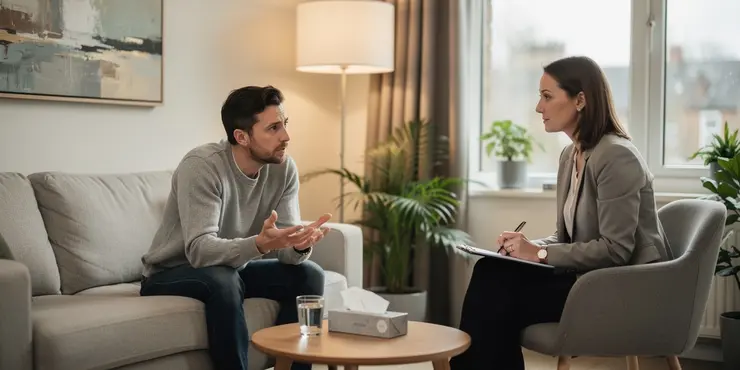
BSL - Treatment of panic disorder
Relevance: 31%
-

BSL - Panic disorder: things you can do to help yourself
Relevance: 30%
-
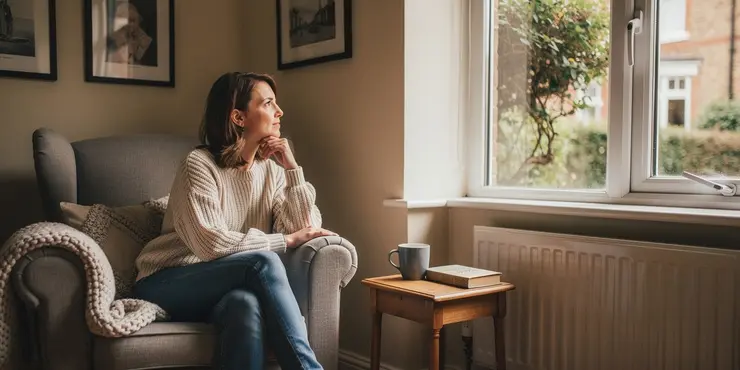
What is Seasonal Affective Disorder (SAD)?
Relevance: 30%
-

Nutrition for Pregnancy: What to Eat
Relevance: 30%
-
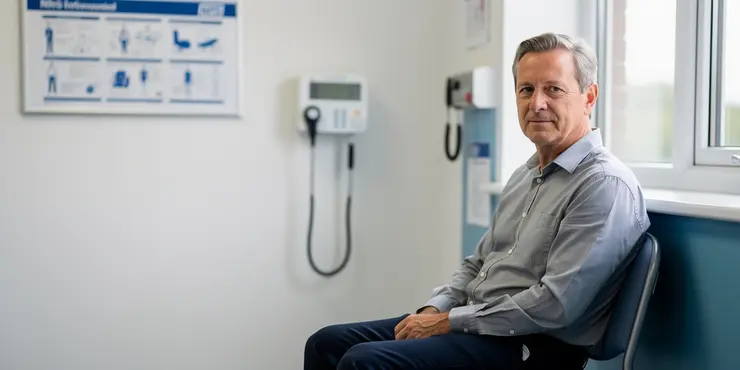
Bipolar disorder: Rod's story | NHS
Relevance: 30%
-
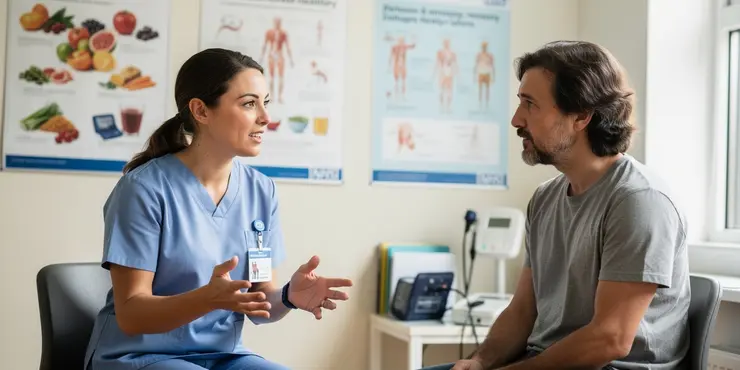
Top 10 Tips for Healthy Eating
Relevance: 29%
-

Is it safe to eat reheated rice?
Relevance: 29%
-
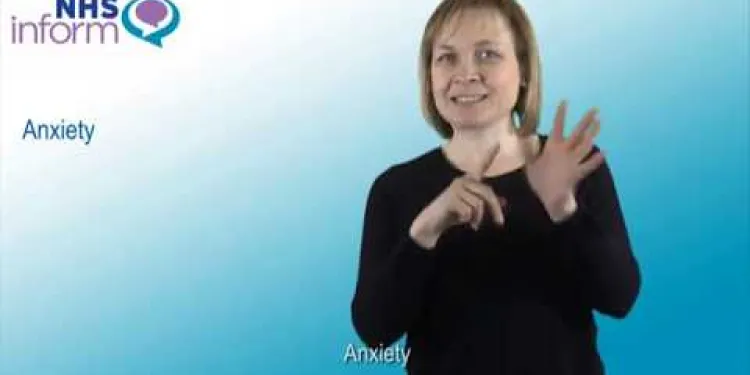
Generalised anxiety disorder (GAD)
Relevance: 29%
-
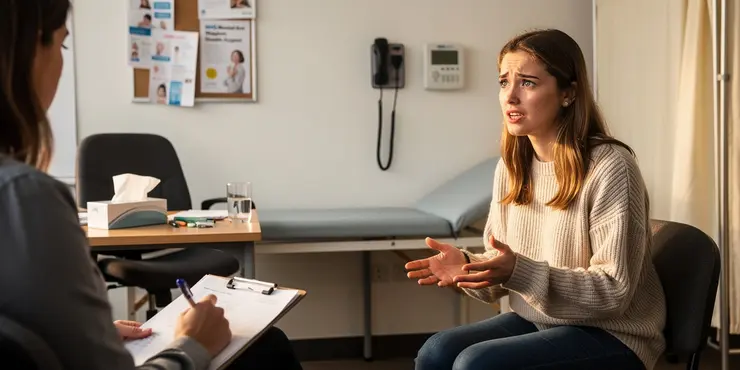
Short Films About Mental Health - Personality Disorders
Relevance: 28%
Jess Rann - Specialist Eating Disorders Dietitian
Introduction
Jess Rann is a highly esteemed Specialist Eating Disorders Dietitian based in the United Kingdom. She has dedicated her career to helping individuals overcome a variety of eating disorders, including anorexia nervosa, bulimia nervosa, and binge eating disorder. With extensive experience and a compassionate approach, Jess provides a comprehensive range of services aimed at promoting healthy eating habits and improving overall mental well-being.
Professional Background
Jess Rann holds a BSc in Dietetics from a leading UK university and is registered with the Health and Care Professions Council (HCPC) and the British Dietetic Association (BDA). Jess has accumulated years of practical experience working in both NHS settings and private practice, allowing her to offer evidence-based, client-centred care. Her professional expertise is further complemented by ongoing training and participation in specialised conferences and workshops.
Approach and Expertise
Jess Rann's approach to treatment is holistic and client-focused, recognising the complex interplay between psychological and nutritional factors in eating disorders. She employs a variety of therapeutic techniques including Cognitive Behavioural Therapy (CBT), Motivational Interviewing (MI), and Family-Based Treatment (FBT) to support her clients. Jess places strong emphasis on tailored nutritional plans, providing the guidance and tools needed for sustainable recovery.
Services Offered
Jess Rann offers a wide array of services aimed at addressing the unique needs of each individual. These include individual consultations, group therapy sessions, meal planning, and nutritional education workshops. Additionally, Jess collaborates closely with other healthcare professionals, such as psychologists and psychiatrists, to ensure a multidisciplinary approach to treatment. These services are designed to empower clients and their families to develop healthy, sustainable eating habits.
Impact in the UK
The work of Jess Rann has made a significant impact on the lives of many individuals across the United Kingdom. Through her dedication and expertise, she has helped countless clients achieve recovery and significantly improve their quality of life. Her contributions to the field of eating disorders are widely recognised, and she is a frequently sought-after speaker at national events and seminars.
Conclusion
Jess Rann's commitment to her patients and her specialised knowledge make her a trusted and valuable resource in the field of eating disorders. Her integrated, compassionate approach provides a solid foundation for effective treatment and lasting recovery. For anyone in the UK struggling with an eating disorder, Jess Rann offers a beacon of hope and a path towards a healthier future.
Jess Rann - Specialist Eating Disorders Dietitian
Introduction
Jess Rann is a dietitian in the UK. She helps people with eating disorders. This means she helps with problems like anorexia, bulimia, and binge eating. Jess is very kind and has a lot of experience. She helps people eat better and feel happier.
Professional Background
Jess studied dietetics in the UK. She has the right qualifications to be a dietitian and belongs to professional groups like HCPC and BDA. Jess has worked in hospitals and private offices. She keeps learning by going to workshops and conferences.
Approach and Expertise
Jess helps her patients by looking at both their mind and eating habits. She uses different methods like talking therapy and family support. Jess makes special eating plans for everyone. She teaches how to make better food choices for a healthy life.
Services Offered
Jess offers many services. She has one-on-one meetings, group sessions, and classes about food. Jess also works with doctors and therapists to help her clients. Her teamwork helps people and their families learn and stick to healthy eating.
Impact in the UK
Jess has helped many people in the UK. Thanks to her, many have recovered and feel much better. People respect her work. Jess often speaks at big events about eating disorders.
Conclusion
Jess cares about her patients a lot. She is an expert and uses her skills to help people recover from eating disorders. Jess offers hope and a chance for a healthier life for those in the UK who need help.
Frequently Asked Questions
What is an eating disorder?
An eating disorder is a mental health condition characterized by abnormal or disturbed eating habits which negatively impact a person's physical and emotional health.
What are common types of eating disorders?
Common types include Anorexia Nervosa, Bulimia Nervosa, Binge Eating Disorder, and Avoidant/Restrictive Food Intake Disorder (ARFID).
What causes eating disorders?
Causes can include a combination of genetic, environmental, psychological, and social factors.
How can I recognize signs of an eating disorder?
Signs include rapid weight loss or gain, preoccupation with food, body image disturbances, and avoidance of social eating situations.
Is there a difference between dieting and an eating disorder?
Yes, dieting is usually a temporary effort to lose weight, while an eating disorder is a persistent mental health condition requiring professional treatment.
When should I seek help for an eating disorder?
Seek help immediately if eating behaviors interfere with physical health, mental well-being, or daily functioning.
Where can I find support for eating disorders in the UK?
Support can be found through the NHS, specialized clinics, charities like BEAT, and private practitioners.
Can eating disorders be treated with diet alone?
No, effective treatment often requires a combination of dietary management, psychological therapy, and medical intervention.
What role does a dietitian play in treating eating disorders?
A dietitian helps develop nutritional plans, educates on healthy eating habits, and provides support to restore healthy relationships with food.
Can men suffer from eating disorders?
Yes, eating disorders affect people of all genders, though they are often underreported in men.
What are the long-term effects of untreated eating disorders?
Long-term effects can include severe health complications, such as heart issues, bone deterioration, and mental health problems.
What should I do if I suspect a loved one has an eating disorder?
Approach them with care and empathy, encourage them to seek professional help, and offer your support throughout their treatment.
Is recovery from an eating disorder possible?
Yes, with appropriate treatment and support, many people recover from eating disorders and regain their health.
How can I support someone in eating disorder recovery?
Offer emotional support, educate yourself about eating disorders, encourage healthy eating habits, and avoid making comments about weight or appearance.
What resources are available for young people with eating disorders?
Resources include Child and Adolescent Mental Health Services (CAMHS), specialist eating disorder teams, and educational programs aimed at young people.
What is an eating disorder?
An eating disorder is when someone has a big problem with the way they eat. They might eat too much, not enough, or in a very strange way.
Eating disorders can make people sick. It's important to get help from a doctor or a therapist.
Talking to a friend or family member can also help.
There are tools that can help, like picture books or apps that explain eating disorders in a simple way.
An eating disorder is an illness that affects how someone eats. It can make someone eat in unhealthy ways. This can hurt their body and feelings.
What are common types of eating problems?
There are different kinds of eating problems. They are called Anorexia Nervosa, Bulimia Nervosa, Binge Eating Disorder, and Avoidant/Restrictive Food Intake Disorder (ARFID).
If you find these words hard, you can ask someone to explain them. You can also look for videos or easy-to-read books about them.
What makes people have eating problems?
There are different reasons why this can happen. It might be because of:
- Genes from your family
- Things around you like where you live
- How you feel inside
- People you see and talk to
Using pictures, drawing, or talking to someone you trust can also help understand these reasons better.
How do I see signs of an eating problem?
Here are some ways to see if someone might have an eating problem:
- They might worry a lot about their weight and food.
- They might not eat enough or eat a lot all at once.
- They might say they feel fat even if they are not.
- They might exercise too much to lose weight.
- They might go to the bathroom right after eating.
If you think someone has an eating problem, talk to a trusted adult or a doctor. Reading and learning tools can help too, like audiobooks or apps that read text out loud.
Signs include quickly losing or gaining weight, thinking about food a lot, being unhappy with how your body looks, and not wanting to eat with other people.
What is the difference between dieting and an eating disorder?
Yes, dieting is when people try to eat less to lose weight for a short time. An eating disorder is a serious health problem that lasts a long time. People need a doctor to help them get better.
When should I get help for eating problems?
If you have trouble with eating, it is good to talk to someone. Here are some signs you might need help:
- You feel worried or sad about food a lot.
- You eat a lot more or a lot less than usual.
- You feel bad about eating.
- Your weight changes a lot up or down in a short time.
- You have tummy aches, feel dizzy, or feel tired all the time.
If you feel like this, tell a friend, a parent, or a teacher. They can help you talk to a doctor or a nurse.
Using pictures or stories can help you understand your feelings better. You can also write down your feelings in a notebook.
If eating is making you sick, sad, or stopping you from doing normal things, ask for help right away.
Where can I get help for eating problems in the UK?
If you need help with eating problems, you can find support in the UK. Here are some ways to get help:
- Talk to a doctor. They can give you advice and support.
- There are helplines you can call to talk about eating problems. They can listen and help you.
- You can visit websites that offer information and support for eating problems.
- Ask a teacher or a trusted adult for help. They might know where to find more support.
Remember, it’s okay to ask for help. You are not alone. Many people are ready to help you.
You can find help from:
- The NHS (The National Health Service)
- Special clinics
- Charities like BEAT
- Private doctors
Here are some ways to get extra help:
- Talking to someone you trust
- Using easy-to-read websites
- Asking for extra time to read things
Can eating disorders be fixed with just food?
Eating problems are serious and need help. Foods can help, but they are not enough by themselves. People with eating problems often feel sad or stressed. It is important to talk to a doctor or a therapist. They can help make a plan to get better. It is also good to have family and friends for support.No, to get better, you often need to do a few things together. You need to eat the right food, talk to someone who can help with your feelings, and see a doctor for help.
How does a dietitian help with eating problems?
Eating problems can make you feel unwell. A dietitian is a special food helper. They teach you how to eat healthy. They aren't scary. They are nice and want to help. If you have eating problems, a dietitian can: - Help you know what foods to eat. - Show you how to eat the right amount. - Make a food plan just for you. - Explain why food is good for your body. If reading or understanding is hard, you can: - Ask someone you trust to help explain. - Use pictures or drawings to understand. - Use audio tools to listen to words.A dietitian helps you make healthy eating plans. They teach you how to eat well and support you in having a good relationship with food.
Can men have eating problems?
Yes, men can have eating problems too. Eating problems mean that someone has trouble with food and eating. It can happen to anyone, not just women.
If you or someone you know has eating problems, it is important to talk to someone. Talking to a parent, teacher, or doctor can help. They can listen and give support. There are also tools to help, like phone apps or online advice. Remember, you are not alone, and help is available.
Yes, eating problems can happen to anyone, whether they are a boy or a girl, but boys don't talk about it as much.
What happens if eating problems are not treated for a long time?
If someone has eating problems and does not get help, it can hurt their body and mind over time. This might make them feel very sick or sad. It is important to talk to a doctor or someone who can help. Using pictures or talking with friends can make it easier to understand.
Over time, this can make you very sick. It can hurt your heart, make your bones weak, and make you feel sad or worried.
What can I do if I think someone I care about has an eating problem?
If you think someone you care about has trouble with eating, here are some steps you can take:
- Talk to them. Say what you have noticed and that you are worried.
- Be kind and listen to what they are feeling.
- Tell them they are not alone and you want to help them get better.
- Encourage them to speak to a doctor or a counselor.
- You can help them find good websites or phone numbers for support.
Remember, it is important to be patient and supportive.
Be kind and gentle when talking to someone about their problems. Tell them it's okay to ask a doctor or a therapist for help. Let them know you will be there to support them while they get better.
Can you get better from an eating problem?
Yes, you can get better from an eating problem. It might be hard, but with help, people do get better.
Here are some things that can help:
- Talking to a doctor or a therapist.
- Joining a support group where you can talk with others.
- Having family and friends who understand and support you.
- Reading books or watching videos about how to get better.
Remember, you are not alone, and it is okay to ask for help.
Yes, with the right help and support, many people can get better from eating problems and become healthy again.
How can I help someone get better from an eating problem?
Help your friend feel good, learn about eating problems, suggest healthy foods, and don't talk about how someone looks or their weight.
What help can young people with eating problems get?
If you are young and have problems with eating, there are places and people who can help you feel better. Here are some support ideas:
- Talk to a Trusted Adult: Find a grown-up you trust, like a parent, teacher, or counselor. They can listen and help you find more support.
- Visit a Doctor: A doctor can check your health and tell you about different ways to get help.
- Join a Support Group: There are groups where you can talk to other young people who have the same problems. It can help to know you are not alone.
- Call a Helpline: You can call a special phone number to talk to someone who understands eating problems. They can give good advice and make you feel better.
- Use Helpful Apps: There are apps you can download on your phone that give tips and support for people with eating problems.
Remember, asking for help is a strong and brave thing to do. You deserve to feel good and get the support you need.
There is help for children and teenagers. This includes services to support mental health, teams that help with eating problems, and special programs in schools.
Useful Links
This website offers general information and is not a substitute for professional advice.
Always seek guidance from qualified professionals.
If you have any medical concerns or need urgent help, contact a healthcare professional or emergency services immediately.
Some of this content was generated with AI assistance. We’ve done our best to keep it accurate, helpful, and human-friendly.
- Ergsy carfully checks the information in the videos we provide here.
- Videos shown by Youtube after a video has completed, have NOT been reviewed by ERGSY.
- To view, click the arrow in centre of video.
- Most of the videos you find here will have subtitles and/or closed captions available.
- You may need to turn these on, and choose your preferred language.
- Go to the video you'd like to watch.
- If closed captions (CC) are available, settings will be visible on the bottom right of the video player.
- To turn on Captions, click settings .
- To turn off Captions, click settings again.
More Items From Ergsy search
-

Jess Rann - Specialist Eating Disorders Dietitian
Relevance: 100%
-

Eating disorders: treatment
Relevance: 79%
-

The treatment approach for an eating disorder
Relevance: 75%
-
Can eating disorders be treated?
Relevance: 72%
-
How are eating disorders diagnosed?
Relevance: 69%
-
What is an eating disorder?
Relevance: 67%
-
What is an Eating Disorder?
Relevance: 67%
-
Are there preventative measures for eating disorders?
Relevance: 66%
-
What is the role of therapy in treating eating disorders?
Relevance: 63%
-
Is it possible to recover from an eating disorder?
Relevance: 62%
-
How can someone seek help for an eating disorder?
Relevance: 62%
-
Who is at risk for developing an eating disorder?
Relevance: 61%
-
Are eating disorders only about food?
Relevance: 61%
-
What are the main types of eating disorders?
Relevance: 61%
-
Can eating disorders occur with other mental health conditions?
Relevance: 61%
-
What are common symptoms of eating disorders?
Relevance: 60%
-

What is the impact of eating disorders on physical health?
Relevance: 58%
-
What are the early warning signs of an eating disorder?
Relevance: 58%
-
What are some common myths about eating disorders?
Relevance: 57%
-
What are the long-term effects of untreated eating disorders?
Relevance: 57%
-

How do eating disorders affect mental health?
Relevance: 57%
-
What is body dysmorphia and how is it related to eating disorders?
Relevance: 55%
-
How can someone help a loved one with an eating disorder?
Relevance: 53%
-

What should I eat to help with chronic kidney disease?
Relevance: 34%
-

Living with Bipolar Disorder
Relevance: 33%
-

BSL - Symptoms of panic disorder
Relevance: 33%
-

Strategies for Managing Seasonal Affective Disorder
Relevance: 32%
-

What is seasonal affective disorder - or SAD?
Relevance: 32%
-

BSL - Diagnosis of panic disorder
Relevance: 32%
-

BSL - Causes of panic disorder
Relevance: 32%
-

BSL - Introduction to panic disorder
Relevance: 31%
-

BSL - Treatment of panic disorder
Relevance: 31%
-

BSL - Panic disorder: things you can do to help yourself
Relevance: 30%
-

What is Seasonal Affective Disorder (SAD)?
Relevance: 30%
-

Nutrition for Pregnancy: What to Eat
Relevance: 30%
-

Bipolar disorder: Rod's story | NHS
Relevance: 30%
-

Top 10 Tips for Healthy Eating
Relevance: 29%
-

Is it safe to eat reheated rice?
Relevance: 29%
-

Generalised anxiety disorder (GAD)
Relevance: 29%
-

Short Films About Mental Health - Personality Disorders
Relevance: 28%


